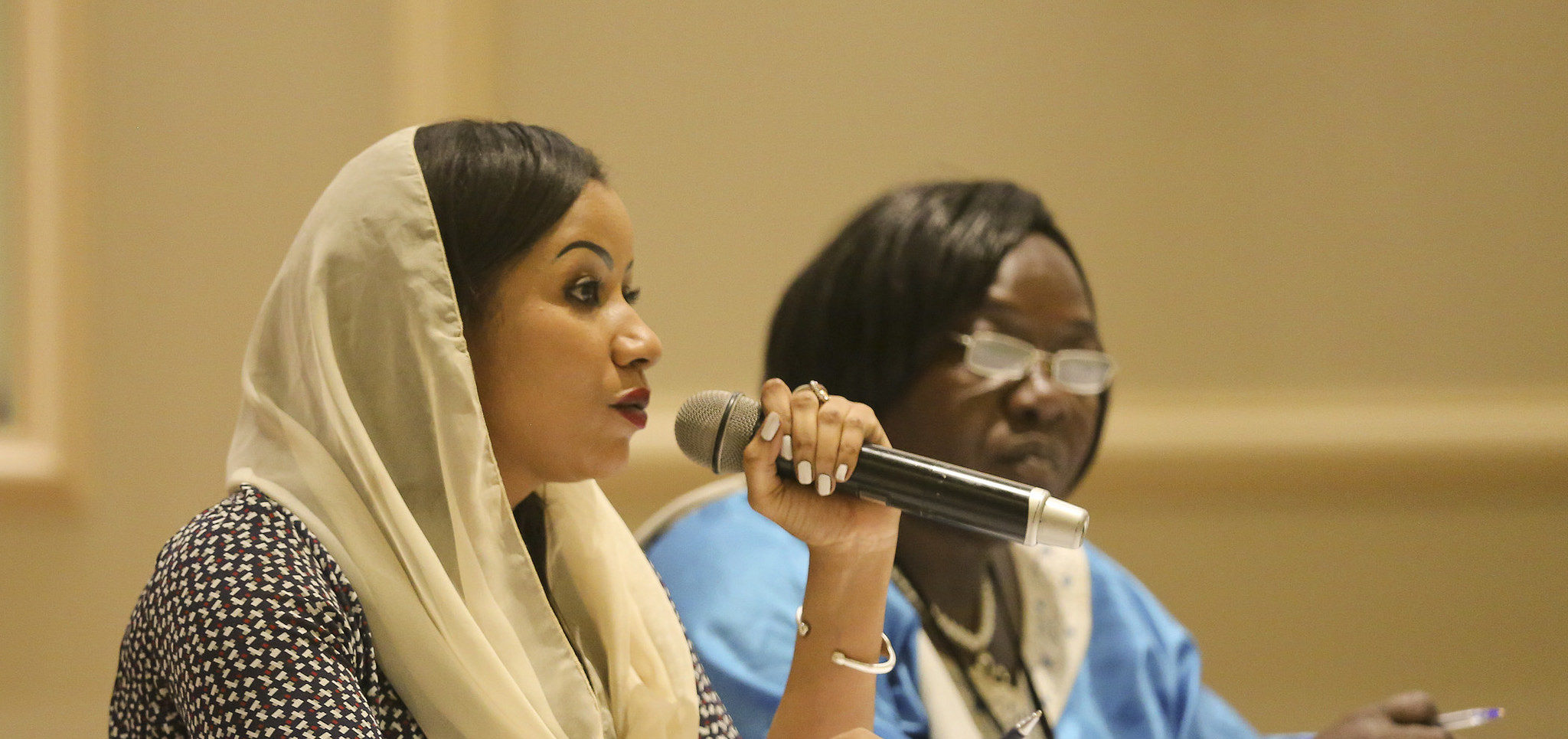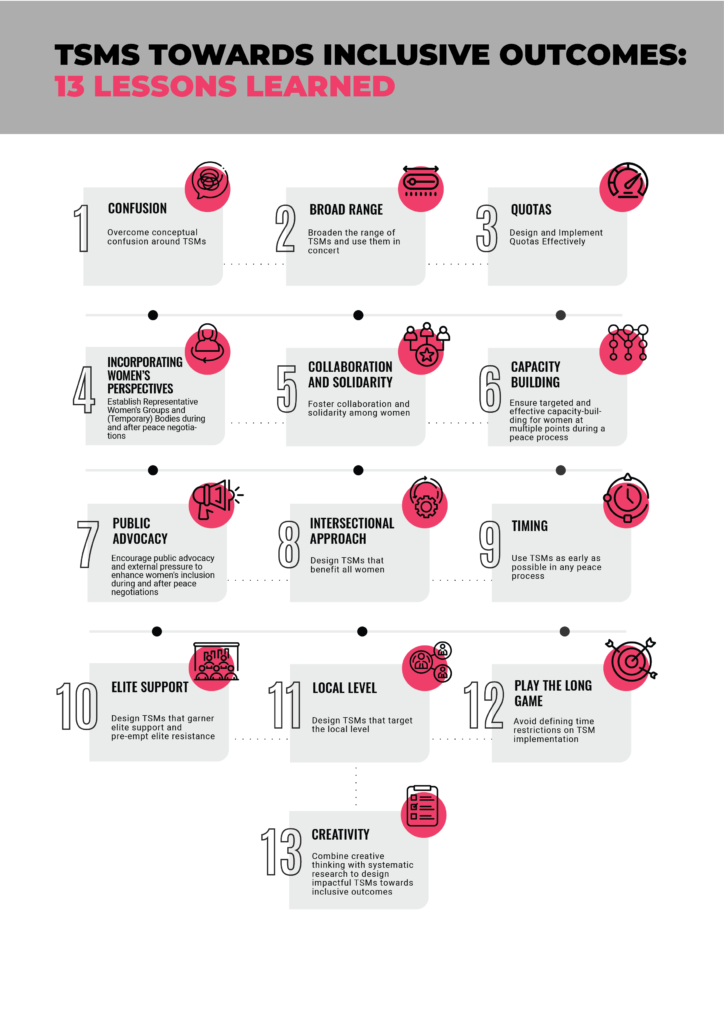Transforming gendered power dynamics: Top 7 reading recommendations from our bookshelf
Our research team has compiled a list of reading materials from our library for you to dive into during this week of International Day of Peace. This list presents you with inspiring readings on how to make peace and political transition processes more gender-responsive.
Since its founding, Inclusive Peace has supported women peacebuilders in their efforts to influence local, regional, and global peace processes. Our work – peace process support and research – continuously addresses one of the key recommendations in the UNSG’s New Agenda for Peace: transforming gendered power dynamics in peace and security. Here are the top 7 of our reports and policy papers on the topic:
#1: A Practical Guide to a Gender-Inclusive National Dialogue
By bringing women into a National Dialogue and taking a gender-responsive approach, this paper fosters understanding of how to make it truly inclusive of women. Women’s inclusion and influence in dialogue will be discussed in terms of process design and context factors, as well as strategies to overcome resistance. To differentiate between levels of gender-inclusiveness, a spectrum has been introduced.
#2: Reaching an Inclusive Truce: Gendering Ceasefires
To make ceasefire texts and their constituent provisions more gender inclusive, the paper reviews and edits gender provisions drawn from ceasefire texts around the world, and examines existing literature on gender and ceasefire. There are 15 concrete strategies that result from the overall analysis, which promote inclusive ceasefire negotiation processes and inclusive, gender-responsive outcomes.
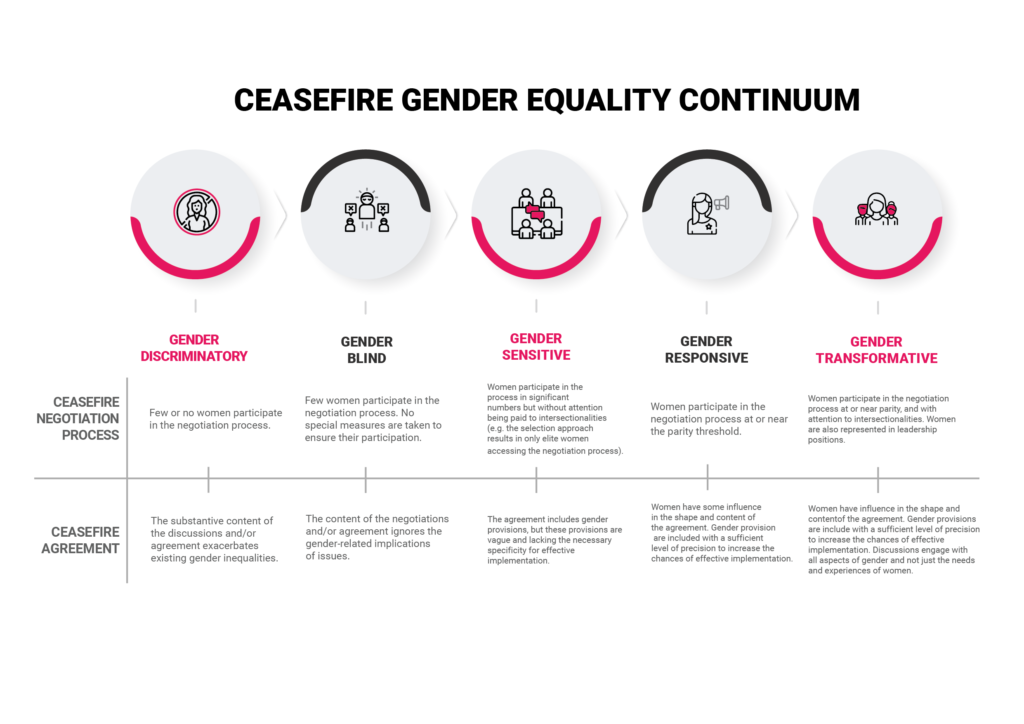
#3: Transfer from Track Two Peacebuilding to Track One Peace-making: A Focus on Yemen and Syria
This report and its policy brief provide insights into the transition of Yemen and Syria from track two peacebuilding to track one peacemaking. Researchers and practitioners are encouraged to rethink, refine, and clarify the concept of transfer to promote participatory, homegrown peacebuilding and peacemaking by discussing five main obstacles and barriers.
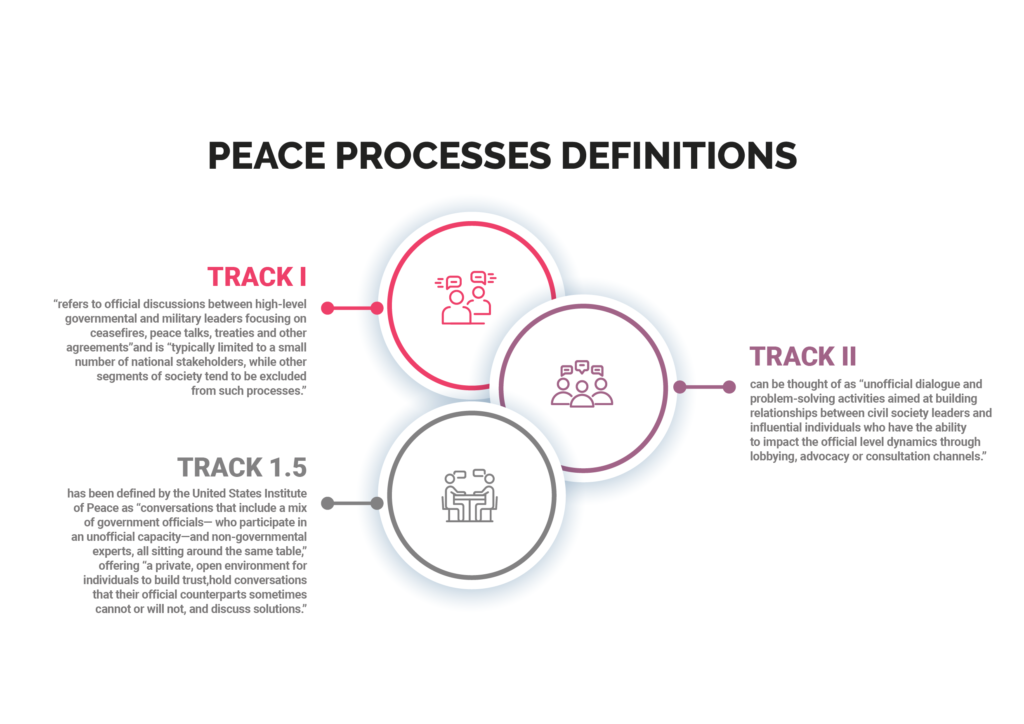 #4: Protection of Women Peacebuilders in Conflict and Fragile Settings in the MENA Region
#4: Protection of Women Peacebuilders in Conflict and Fragile Settings in the MENA Region
Women peacebuilders and human right defenders from the MENA region are exposed to offline and online risks and threats in their daily work as presented in this report. A comprehensive analysis of existing protection regimes identifies twelve entry points that could be enhanced to enhance the protection of women peacebuilders.
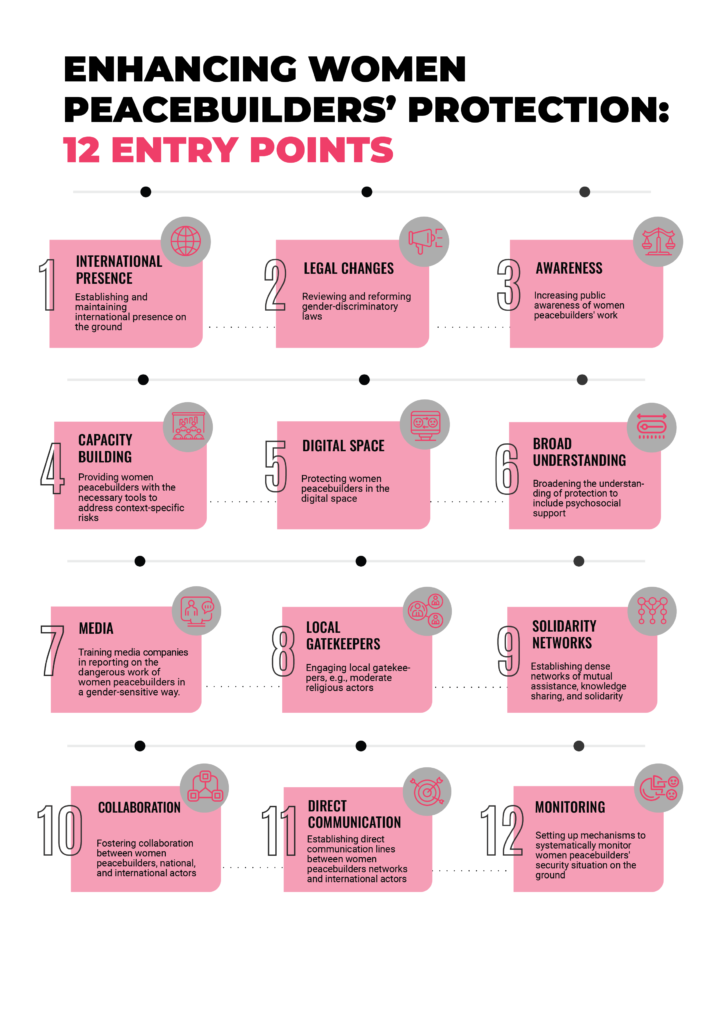
#5: Using Temporary Special Measures for Inclusive Processes and Outcomes
In the post-agreement phase, the paper examines how temporary special measures (TSMs) can contribute to promoting political, economic, and social gender equality by making peace negotiation processes more inclusive of women, addressing patriarchal backlash, and changing patriarchal norms. Using the results of the analysis, thirteen lessons are derived on how to design effective TSMs in order to foster sustainable, inclusive outcomes.
#6: Entry Points Towards Ending Violence, Inclusive Peacemaking, and Democratic Transition in Sudan
Since April of this year, the Sudanese Armed Forces (SAF) and Rapid Support Forces (RSF) have engaged in an escalating armed conflict, with millions affected. Providing seven entry points for furthering inclusive peacemaking across Sudan, the policy paper examines short- and medium-term scenarios for Sudan’s political development.
#7: Making Women Count
This report is based on the multi-year research project “Broadening Participation in Political Negotiations and Implementation”. It analyses women’s inclusion in peace and political transition processes from 1990-2015, examining the ways in which women can be included, and the factors that affect their participation in and influence on such processes.
Report,
A Practical Guide to a Gender-Inclusive National Dialogue
This guide is intended to be a practical resource for anyone preparing, advocating for, or participating in an upcoming or ongoing national dialogue, and it seeks to foster understanding of how to make a national dialogue truly inclusive of women and gender.
May 2023Nick Ross,
Report,
Reaching an Inclusive Truce: Gendering Ceasefires
This paper serves as a guide to gender-responsive ceasefire agreements. It explores strategies to enhance women’s influence over ceasefire negotiations and provides both language and an approach to render ceasefire texts and their constituent provisions more gender responsive.
May 2023Kaitlyn Hashem, Alexander Bramble,
Report,
Transfer from Track Two Peacebuilding to Track One Peacemaking: A Focus on Yemen and Syria
This report shares new insights about transfer from track two to track one in Yemen and Syria, and provides a framework that all actors and funders can use to assess and plan for effective transfer.
May 2023Kaitlyn Hashem, Thania Paffenholz,
Report,
Protection of Women Peacebuilders in Conflict and Fragile Settings in the MENA Region
This paper seeks to promote a better understanding of the threats and risks that women peacebuilders in Iraq, Libya, Syria, and Yemen frequently encounter. Also, it aims to sketch support strategies that could be used in the future to enhance the protection of women peacebuilders.
May 2023Philip Poppelreuter,
Report,
Using Temporary Special Measures for Inclusive Processes and Outcomes
This paper explores the capacity of TSMs to render peace negotiation processes more gender inclusive and to promote political, economic, and social gender equality in the post-agreement phase.
May 2023Philip Poppelreuter, Nick Ross, Alexander Bramble,
Policy Paper,
Entry Points Towards Ending Violence, Inclusive Peacemaking, and Democratic Transition in Sudan
The escalation of armed hostilities between the Sudanese Armed Forces (SAF) and the Rapid Support Forces (RSF) on 15 April 2023 have pushed Sudan to the brink of collapse. This policy paper considers potential scenarios for the country's political development in the short- and medium-term and identifies seven entry points for furthering inclusive peacemaking in Sudan.
July 2023Philip Poppelreuter, Thania Paffenholz, Alexander Bramble,
Report,
Making Women Count - Not Just Counting Women: Assessing Women's Inclusion and Influence on Peace Negotiations
This report is based on the multi-year research project “Broadening Participation in Political Negotiations and Implementation”. It examines women’s inclusion and influence in peace processes.
April 2016Steven Dixon, Anna-Lena Schluchter, Jacquie True, Thania Paffenholz, Nick Ross,

